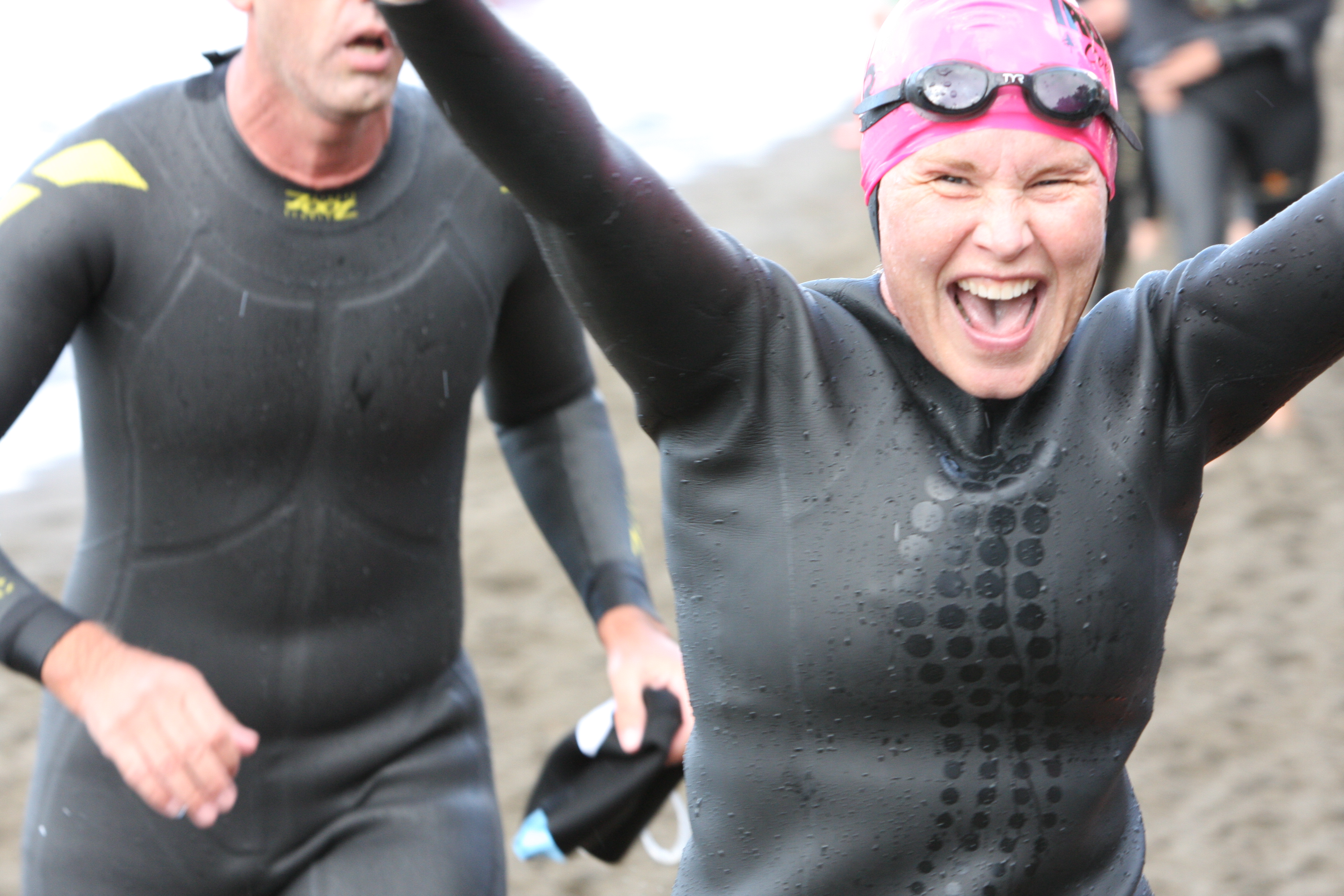Appropriate Weight for Activity
When I was younger, making some pretty basic changes always led to lost pounds: cutting out desserts or alcohol, passing up on eating out, upping my exercise amount/type/intensity, or birthing and feeding babies (I only tried that route three times). Throughout my 20s and 30s, my weight did some yo-yoing. When, at 36, I first took up running, any unwanted pounds I had melted off; I was the thinnest I’d been in my adult life without even trying.
I remember thinking with delight that I was bound to be this weight for the rest of my life, because I loved running and I’d never stop. At 5’4″, I hit my marathon PR and 128 pounds the same year; according to maxVO2 testing done at Fitness Institute of Texas, my optimal athletic weight was 125 pounds. Life was good.
I got into ultramarathons, and my weight changed with the focus on slower runs at a more varied pace. I also developed an under-functioning thyroid, which threw my body for some serious loops. Medication fixed that problem, the added weight came off, and I found myself at Ironman Coeur d’Alene feeling strong, a very fit 136 pounds at weigh-in.

A few years later, training for my first 100 miler, I hovered between 138 and 140 pounds. While I’d have preferred being at my marathon PR weight and not having those scale numbers creeping up, I was happy with what my body could do, excited about training, and looking forward to the running success I anticipated.
What did a few pounds matter, after all, if my body was performing like a champ?
Injury and Age Don’t Help

At that first 100 mile trail race, I slipped on some ice and broke my ankle, resulting in a DNF, surgery, and a lengthy recovery. That one misstep cost me six months; the race was in February and it was August before I was cleared to begin a return to running outdoors with full body weight.
And how that had ballooned — the time immobile combined with a late 40s, peri-menopausal hormonal avalanche piled on top of a metabolic system accustomed to burning thousands of daily calories landed me at some 155 pounds.
I’d gained 15 pounds even though I tried hard to eat less and be mindful of exactly what went in my mouth, attempting to keep my metabolism active through aqua jogging and working my physical therapy. I aimed for philosophical acceptance: sure, the weight went on easy, and it would come off easy, just as soon as I got back to my old workout ways.
WRONG.
Now, my purpose is not to beg for sympathy here because, in the grand scheme of things, my expanding girth is not the end of the world…but I have struggled to lose those extra pounds. I’ve made no appreciable difference in four years. I’ve had lab work done and checked, consulted with my endocrinologist and general practitioner, worked with nutritionists. I’ve conscientiously addressed dietary problems, going gluten free a year ago and dramatically reducing rice, potatoes, and dairy. My diet is great (in fact, I eat like my husband, who has lost 35 pounds, except I do a better job of resisting alcohol during the week) and I work out almost every day, some days more than once. In the hopes that sleeping better, getting out from behind a desk, and reducing stress would improve my overall fitness and show a positive return in healthier weight, I even left my demanding job.
Since Christmas, I’ve focused and worked very hard. The results? A loss of 1.5 pounds.
Yes, I am happy with that progress. But it’s hard to stay motivated when I haven’t been able to make a lasting difference in so long.
How do you keep focused when success seems so elusive?
The weight loss motivational drivel is so trite. I am so beyond the type of stuff found in, say, this Women’sHealth article. So I think the only thing to do is apply the same ideas that will get me to the end of a 100 miler. Is that a guaranteed outcome? No. Did that stop me from focusing and working hard? No. Was I always able to see positive results? Not necessarily.
Endurance Running Tips to Guide Weight Loss
- Focus on one foot in front of another. A run of 100 miles is merely a really long chain of single steps; success comes from breaking the training and the event itself down to one movement at a time. Just make each step forward progress.
- Adopt a mantra. In running, my mantra was “Relentless pursuit of forward momentum.” When I came to difficult spots, I’d repeat my mantra to bolster my resolve.
- Accept the hills and valleys. When out on a trail all day and all night, there are bound to be good spots and terribly, horrible bad spots, no matter what. It just happens, and getting into the “this shall pass” headspace can make the difference between crossing the finish line and bailing at an aid station.
- Publicly state the goal. Nothing provides impetus to a training regimen like telling everybody just what the goal race and desired results are. I’ve even written down goal times and put them in my shoe on race day for motivation.
- Put together a kick-ass crew. It’s important to be surrounded by a support team that understands the activity and appreciates the goal and, above all else, knows YOU. I need to make sure that I’m working toward my goal with friends who are fully committed to my success.
- Commit to finishing. The minute that the option to bail becomes an accepted outcome, you’re halfway off the trail. Eminem said it right:
Success is the only option. You can do anything you set your mind to.



I so, so hear you. I did Ultraman at a higher weight than I wanted, but it was fine, because I was fit. Then I took time off. But that was fine, because my body needed it. And now I\’m 10-15 lbs over where I want to be, definitely at least 5-10 than I need to be, and I\’ve been losing and gaining the same 2 pounds for a month. Can\’t make any progress. So, so frustrating. How can we eat so much better than most people, but still lose no weight? Injustice, I tell you.
I so, so hear you. I did Ultraman at a higher weight than I wanted, but it was fine, because I was fit. Then I took time off. But that was fine, because my body needed it. And now I’m 10-15 lbs over where I want to be, definitely at least 5-10 than I need to be, and I’ve been losing and gaining the same 2 pounds for a month. Can’t make any progress. So, so frustrating. How can we eat so much better than most people, but still lose no weight? Injustice, I tell you.